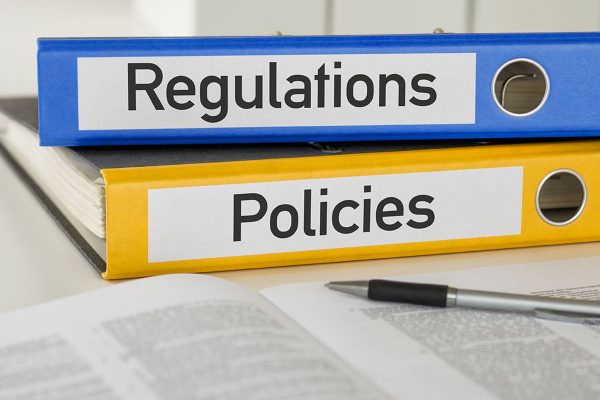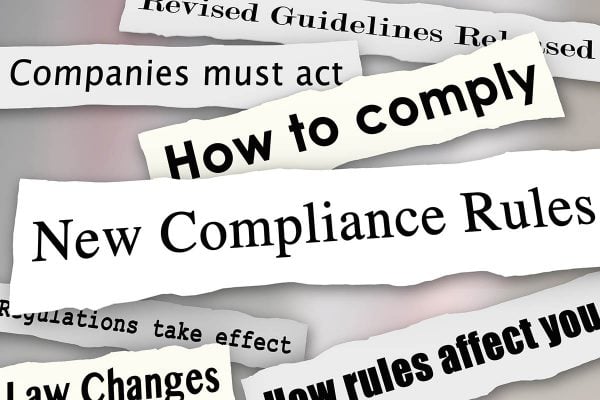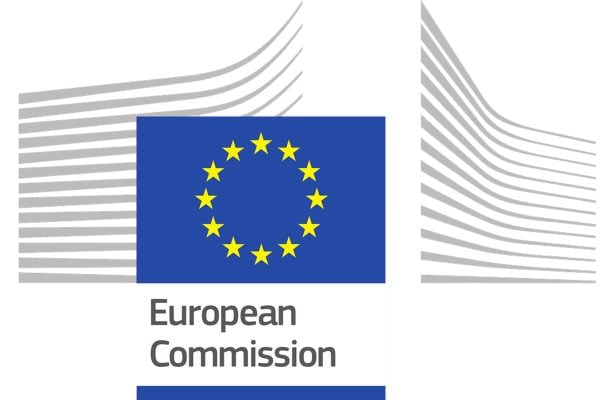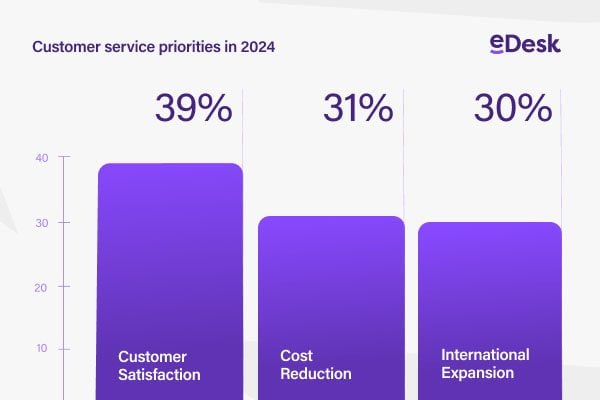Download or read online
This position paper on Packaging is available as a free download to read offline at your convenience, or carry on reading below.
Regulation
Ecommerce may occur online but it is subject to the laws of the land just like any business. And once you start buyings goods to sell, you’re running a business and have responsibilities and obligations distinct from an individual selling a few items casually on an online marketplace.
In a pre-internet age, if you wanted to set up a retail business, the approach was relatively simple: you would find products to sell and establish an outlet and open the doors. You would make sales directly to people who had examined the goods, met face to face and you would answer there questions. But your customer base with limited.
With online retail, typically, you’re dealing customers who haven’t examined their purchases in advance and you’ll have to provide information about postage and returns. And when it comes to regulation related to online retail (or distance selling specifically) it’s those sort of things that are specifically regulated.
But with distance selling come the benefits of a much greater customer base interested in your products, the potential for international sales and the benefit that your shop is never shut. People can shop at any time of day from anywhere in the world. So the regulation you might have to tackle will not just be with your domestic authorities but those of foreign countries and bodies, such as the EU.
An ecommerce merchants journey through the jungle of regulation will grow in complexity as a business develops. The responsibilities of a sole trader, working alone, selling goods from home to their domestic market will be different to those of a VAT registered, Limited company, employing staff and selling to their home country and also territories inside and outside of the EU.
This paper will examine three areas:
- Generic business regulation that would be applicable to any UK business operator.
- Regulations applicable to an ecommerce merchant trading domestically
- An overview of the regulation to consider when trading internationally
When it comes trading on marketplaces such as eBay and Amazon, it’s worth remembering that they help a great deal to comply with regulations on two levels. Firstly, once you’re established as a business seller, they will ensure that all the relevant information you’re required to provide to shoppers is correctly displayed and they often require above the bare minimum. Secondly, marketplace rules are often more stringent than the law. Amazon and eBay both make greater demands on merchants when it comes to giving returns, for instance, than the law.
In this overview document we’ll examine the many and various regulations you need to consider as you start and run your online retail operation. It signposts the regulations you need to be aware of.
(And a general note that accompanies all the information in this position paper. Your business is precious and unique so when considering the issues surrounding regulation, we strongly suggest getting honed professional advice as well as seeking expertise from other merchants and experts. Especially when it comes to tax issues, engaging an accountant or specialist is very well advised.)
Starting a business and UK Tax, VAT and GDPR
Business Registration
One of your first tasks is to establish yourself as a business and there are two options available. You are operating as a business the moment you start selling goods that you have bought for resale.
You can operate as an online retailer on eBay and Amazon as either a sole trader or Limited company. Neither marketplace discriminates and the form you choose will depend on your personal circumstances and ambitions.
As a sole trader you will need to register as a business within 100 days of beginning your operation and file a self-assessment tax return with HMRC for tax purposes. All of this can be administered online.
If you establish a Limited company, you will need to file company tax returns for the company as well as your own tax returns. The registration process is more onerous but not excessively complicated and can also be completed online.
VAT
When it comes to UK sales tax, Value Added Tax or VAT, the magic number is £85,000 (in the years from April 2018 – 2020). That is the level of turnover made in any one tax year after which you are required to register for VAT with HMRC. You can register before that, if you wish, but the additional work required in filing the twice annual VAT return usually deters merchants from registering for VAT until it is absolutely required.
There several things to remember about VAT and your responsibilities as a seller. Firstly, the VAT that you collect as you sell goods online is never yours. You are collecting it on behalf of the government. And that brings us to the second key point: HMRC has great powers when it comes to collecting VAT and if you don’t fulfil your obligations the penalties are stiff and put your business at risk.
GDPR
Another set of regulations that are generic to all UK businesses (indeed they are European Union rules) is the GDPR or General Data Protection Regulations. These came into force during 2018 and govern how businesses hold and use customer data and give consumers rights when it comes to requesting what information an organisation (including SMEs) holds about them and gives them the power to order the deletion of their details from a database.
The primary purpose of these regulations is to prevent companies sending spam marketing materials and misusing contacts details and other information. That’s why this general regulation applicable to all businesses is particularly salient to online merchants. It will be specifically important if you have created and use an email mailing list for marketing purposes.
There is a lot of information available about GDPR. But if you’re exercising common sense, treating personal information with respect and ensuring that you only market to people who have actively opted in to your mailing list, you have very little to fear
Price fixing and anti-competitive practices
This is unlikely to be relevant to many but it is worth noting that colluding with other merchants to fix prices is illegal. An example could be where you and one or more other merchants in a similar field agree to set your prices as a certain level so you no longer undercut each other. If you are discovered doing this then the penalties are stiff.
Accounts
It is by no means compulsory that you engage an accountant. A reasonably competent person can keep their own books and file their own tax return. But even a sole trader can benefit from the advice and expertise one can offer. And for Limited companies and VAT registered firms it is strongly advised. As most SMEs usually attest, a good accountant usually pays for herself by explaining innovative ways to save on the tax bill.
Regulations for ecommerce merchants trading domestically
For British traders selling within the UK, two key pieces of legislation, govern how you sell, send and deliver goods and subsequently deal with returns.
The Consumer Contracts Regulations
The Consumer Contracts (Information, Cancellation and Additional Charges) Regulations 2013 covers online sales and is the successor to the better known Distance Selling Regulations which are now defunct.
Most of the time, when selling on marketplaces, you will already be fulfilling the information requirements you must provide to shoppers. Here is a digest of what information merchants need to provide regarding tangible goods (but the rules also cover services and digital goods):
- A description of the goods and the total price
- How you wish to be paid and how long the goods will likely take to arrive
- Details of all additional delivery costs
- Information on how the goods can be returned
- Your business information, including geographical address and contact details.
- Software and digital content needs comprehensive compatibility information provided
Consumers have a basic right to return: 14 days from receiving the goods. The merchant must pay for the basic cost of delivery. So if a customer opted for expedited delivery, you don’t need to cover that. The returned goods must also be in resellable condition.
Some items are excluded from returns. CDs, DVDs or software where the seal has been broken, perishable items and tailor-made or personalised items, goods with a hygiene seal and also underwear and earrings.
The Consumer Rights Act
This law came into force in 2015 and covers two specific issues related to online selling. Firstly, delivery times and liabilities and what happens with faulty goods.
- In short, the Act says that a retailer is responsible for the condition of the goods until the goods are received by the consumer or a nominated person. And the retailer is responsible for the services provided by the carrier: the delivery firm is not liable for goods damaged in transit. The default delivery period is 30 days unless otherwise agreed. That’s the nub of it but there some other “edge case” clauses worth exploring.
- When it comes to faulty goods, the Consumer Rights Act is the replacement for the old Sale of Goods Act and means that is a faulty item is received then consumers have exactly the same rights as someone would when buying an item from a high street shop in person.
Probably the most comprehensive and readable summary of the Consumer Contracts Regulations and the Consumer Rights Act comes from Which? but be warned it’s written from a consumer perspective.
Of these rules, by far the most complicated lies with returns how they must be addressed. The situation is further complicated by the labyrinthine polices and appeals processes the marketplaces put in place.
An overview of the regulations to consider when trading internationally
When you start selling overseas you wade into a whole new realm of additional regulation because as a merchant you’re no longer simply dealing with the laws of the UK government but also potentially coming under the purview of any government of a country you trade with. The nature of the regulation will vary. Obviously you will encounter import and export duties when trading outside the EU. You may also, in some countries, be liable to pay local sales tax, even on items bought online. And you should also be cautious about laws regarding items that might be prohibited or restricted in the country you’re shipping to.
International tariffs and duties
If you’re exporting within the EU, there is nothing to worry about at the moment. You just send something as if it was going to the UK. But otherwise, you’ll need to apply a customs declaration for to your despatch detailing the contents of the packet and its value.
The level and nature of import tariffs and duties varies widely by country and depending on what is being sent. And some countries, needless to say, are more strict than others when it comes to applying the charges. Canada and Australia, for instance, are particularly thorough. Most countries have a minimum threshold under which no duties are payable. The buyer is responsible for paying the duties when the goods arrive in country, unless you specify otherwise.
VAT/Sales tax
Across the world different countries apply a variety of VAT or sales taxes on imported goods at their local rate. Even within the EU, you will need to pay VAT on what you send. If you send a parcel to Finland, you must pay VAT at the Finnish rate.
In the United States it is even more complex. Some individual states charge sales taxes at different rates, whilst some don’t. Sales tax is probably the most testing regulatory aspect of international trade.
This is an area where it is essential to engage a specialist VAT firm with ecommerce expertise to ensure you remain compliant with the rules.
Prohibited or restricted items
It’s unlikely that you will be impacted by sanctions or embargoes levelled by governments or fall foul of the restrictions to arms exports but some countries don’t allow the export of some products. For instance, Australia and the USA are particularly sensitive to agricultural or natural products that could harm their environment or contaminate their ecosystems. And carriers are also sensitive to transporting some items such as chemical and batteries. You’ll need to address things like this on a case by case basis but most goods are fine to export.
Brexit and regulation
Needless to say, exactly how regulation of online merchants will change when the UK leaves the European Union will depend on the precise terms of the deal which (as it stands) are still under discussion. The UK will leave the EU in March 2019 and then there will be a transition period until the end of December 2020 until when nothing will change. What happens after that is unknown.
The biggest regulatory concern post Brexit has to be regarding the movement of goods between the UK and the EU (the single market) and how goods coming from outside the EU into Britain will be treated (the customs union). There is very real and legitimate concern that any new arrangement, however benign, could mean delays and paperwork when exporting goods from the UK in future. But we will have to wait and see.
Navigating the regulations
Sometimes you will hear it said that online retailers have a great advantage over and above tradition high street businesses because they are unregulated and the costs of running a business are small.
This point about regulation is false: ecommerce merchants are subject to the exact same regulations as their offline counterparts. As for costs, it can be true that because online retailers don’t operate bricks & mortar shops that they aren’t subject to such costs, specifically insurance charges or business rates. But that’s not universal by any stretch of the imagination. And any ecommerce merchant running a warehouse, employing people or operating business premises of any kind will be subject to the same requirements as any other business. It’s by no means the wild west world of ecommerce some old-style retailers might suggest and online retailers operating from their spare bedroom are by no means the norm these days.
Indeed, if an online merchant starts looking overseas and selling to shoppers in other countries, especially outside the European Union, then the increased regulation applicable, from multiple jurisdictions, can look daunting and prohibitive. Indeed, especially for many smaller merchants, the challenges can prove too much to bear.
The questions you need to address regard returns and rewards. What do you want to achieve and how much red tape are you willing to unravel to achieve your ambitions?









